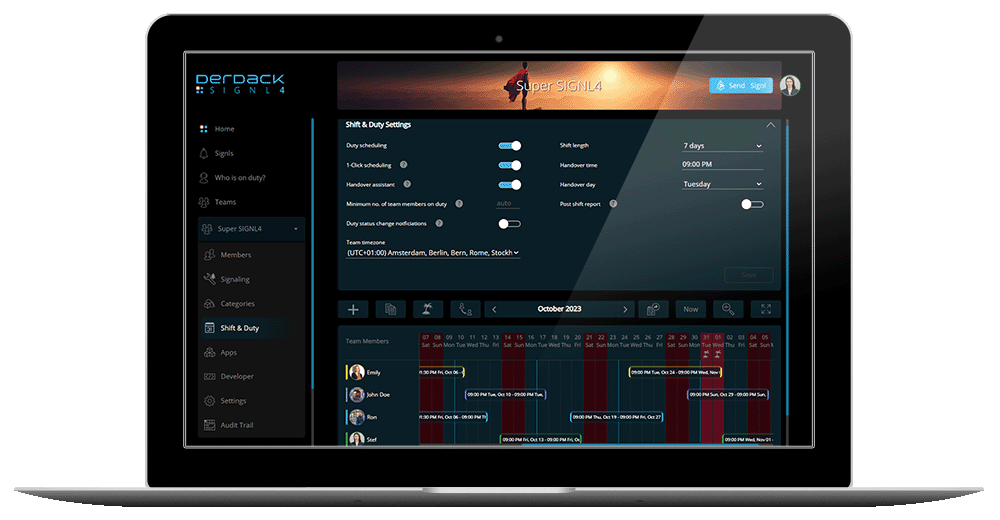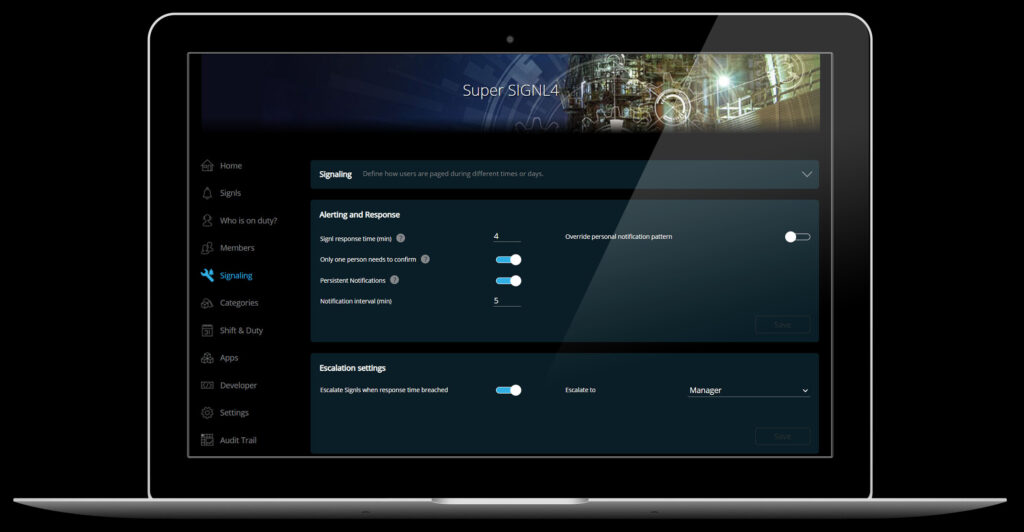On-call availability is crucial for many industries, especially in IT. With the growing reliance on IT systems and services, their availability directly impacts the success and satisfaction of customers. To ensure round-the-clock availability, on-call services are vital for prompt responses to emergencies and issues.
Understanding on-call duty laws in the United States
In the United States, there are no federal laws specifically regulating on-call duty. However, certain state laws, such as those in California, require employers to provide a certain amount of compensation for employees who are required to be on call. The Fair Labor Standards Act (FLSA) mandates payment for all hours worked, including on-call time, unless the employee is free to use the time for personal purposes. It’s also worth noting that some industries, such as healthcare and emergency services, have their own specific regulations for on-call duty. It’s always recommended to consult with an attorney or HR expert to ensure compliance with all applicable laws and regulations.
5 key factors for on-call response
This article covers 5 key factors for successful on-call duty and response, including staff and responsibility allocation, legal compliance, incident escalation, and tool utilization. Find out more here.
1. Identify on-call staff
The first step is to clearly define which employees will be responsible for on-call duty. This should be outlined in the employee contract, including the number of hours and compensation. When creating the on-call schedule, it is important to ensure it is fair and balanced. One way to achieve this is through rotation, which helps distribute the workload among staff. By having each employee on call on a regular basis, you can ensure that no one is overburdened. Once the schedule is set, inform all employees and make sure they know where to find information about it.
2. Assign responsibilities
Next, it’s important to establish specific responsibilities for employees who are on call at the same time. The best way to do this is to assign specific topics or categories for each employee to handle. Also, make sure everyone is aware of the area of responsibility they are in charge of, so that it is clear and easy to understand.
3. Comply with regulations and breaks
Ensuring that on-call compensation is fair and compliant with legal regulations is crucial to prevent overworking employees. Compensation can take the form of a premium on top of regular salary, a flat rate or a combination of both. Some companies offer additional time off. It’s important to consider on-call compensation as part of a broader employee motivation and satisfaction strategy. It is also important that on-call compensation is embedded in an overall strategy for employee motivation and satisfaction.
On-call duty is a common reason for termination in IT, and overworked employees may suffer from decreased productivity and higher absenteeism rates. You can read more about this issue in our blog post. To prioritize the health of essential employees, rest periods should be observed.
4. Establish an escalation point
As humans, it’s possible for unexpected situations to arise, such as a dead phone battery or lack of cell service in a dead zone. In these rare cases, messages may not be received through push, SMS, or calls. To ensure that problems are still addressed, it’s important to establish an escalation chain. This ensures that messages are passed on to the next employee if the on-call employee does not respond.
5. Utilize helpful tools and train staff on their use
You may already be monitoring your systems with a monitoring system such as PRTG, CheckMk, or Zabbix. These systems typically offer monitoring and alarm notifications through email or SMS. There are also specialized tools that focus solely on alarm notifications and are designed to notify the right people at the right time. It’s important to train your staff on how to use these tools effectively.
Making on-call alerting easier with SIGNL4
SIGNL4 is a mobile alerting solution that allows for quick and efficient alerting and coordination of on-call teams. With SIGNL4, you can send alerts and messages to a group of on-call individuals and track their status and actions.
Some of the key features of SIGNL4 that can assist with successful on-call duty include:
- Alerting on-call teams through push notifications, SMS, or phone calls
- Prioritizing alerts based on severity and urgency
- Automatically assigning tasks to available team members
- Location tracking of team members to quickly alert those closest to an incident
- Real-time communication and collaboration through team chat
SIGNL4 can help you effectively organize and coordinate on-call teams to quickly respond to emergencies and deployments, ensuring the safety and security of people and facilities. Learn more about SIGNL4’s features and how it can be used for a successful on-call duty by signing up for our free 30-day trial. With this tutorial you can take the first steps to optimize your on-call planning and dependable alerting of the responsible employees.





